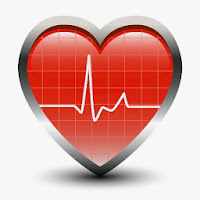Vasovagal reaction is a common condition in which a healthy person temporarily develops low blood pressure, slow heart rate, and sometimes fainting. A vasovagal reaction typically is brought on by emotions of fear or pain such as having blood drawn, starting an intravenous infusion, or by gastrointestinal upset. Vasovagal reactions are caused by activity of the involuntary (autonomic) nervous system, especially the vagus nerve, which releases hormones that slow the heart and widen the blood vessels. The vagus nerve also controls digestive tract function and senses activity in the digestive system. Thus, some people can have a vasovagal reaction from straining at a bowel movement or vomiting.
Postural (orthostatic) hypotension is a sudden drop in blood pressure when an individual stands up from a sitting, squatting, or supine (lying) position. When a person stands up, gravity causes blood to settle in the veins in the legs so that less blood returns to the heart for pumping, and, as a result, the blood pressure drops. The body normally responds automatically to the drop in blood pressure by increasing the rate at which the heart beats and by narrowing the veins to return more blood to the heart. In patients with postural hypotension, this compensating reflex fails to occur, resulting low blood pressure and its symptoms. Postural hypotension can occur in persons of all ages but is much more common among the elderly, especially in those on medications for high blood pressure and/or diuretics. Other causes of postural hypotension include dehydration, adrenal insufficiency (discussed later), prolonged bed rest, diabetes that has caused damage to the autonomic nerves, alcoholism with damage to the autonomic nerves, and certain rare neurological syndromes (for example, Shy-Drager syndrome) that damage the autonomic nerves.
 |
| Conditions that cause low blood pressure |
Another form of postural hypotension occurs typically in young healthy individuals. After prolonged standing, the individual's heart rate and blood pressure drop, causing dizziness, nausea, and often fainting. In these individuals, the autonomic nervous system wrongly responds to prolonged standing by directing the heart to slow down and the veins to dilate thereby removing blood from circulating in the arteries.
Micturition syncope is a temporary drop in blood pressure and loss of consciousness brought about by urinating. This condition typically occurs in elderly patients and may be due to the release by the autonomic nerves of hormones that lower blood pressure.
Adrenal insufficiency for example, due to Addison's disease, can cause low blood pressure. Addison's disease is a disorder in which the adrenal glands (small glands next to the kidneys) are destroyed. The destroyed adrenal glands can no longer produce sufficient adrenal hormones (specifically cortisol) necessary to maintain normal bodily functions. Cortisol has many functions, one of which is to maintain blood pressure and the function of the heart. Addison's disease is characterized by weight loss, muscle weakness, fatigue, low blood pressure, and, sometimes, darkening of the skin.
Septicemia is a severe infection in which bacteria (or other infectious organisms such as fungi) enter the blood. The infection typically originates in the lungs (as pneumonia), bladder, or in the abdomen due to diverticulitis or gallstones. The bacteria then enter the blood where they release toxins and cause life-threatening and profound low blood pressure (septic shock), often with damage to several organs.
Anaphylaxis (anaphylactic shock) is a potentially fatal allergic reaction to medications such as penicillin, intravenous iodine used in some X-ray studies, foods such as peanuts, or bee stings (insect stings). In addition to a severe drop in blood pressure, individuals may also experience hives and wheezing due to constriction of the airways, and a swollen throat which cause difficulty breathing. The shock is caused by enlargement of blood-containing blood vessels and escape of water from the blood into the tissues.